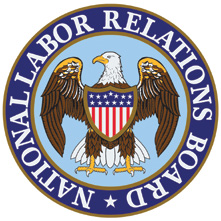By J. Bruce Cross
The National Labor Relations Board (NLRB) issued an invitation to file briefs last year in the Caesars Entertainment Corporation, d/b/a Rio All-Suites Hotel and Casino case (Caesars) on whether the Board should “adhere to, modify, or overrule its 2014 decision in Purple Communications, Inc.” The Board also requested briefs to discuss what standard the Board should use if Purple Communications was to be overruled, and whether any exceptions should be carved out for the use of other forms of communications other than employers’ email systems. The cut off time to submit briefs was in October of 2018, and now the question as to whether the Board will return to its pre-Purple Communications standard concerning employer property rights or whether it will keep its current precedent unchanged, awaits answer.
The Purple Communications Case
In 2014, under the Obama-era Board, the NLRB issued its holding in the Purple Communications case. The Board’s decision in Purple Communications was the first major attempt by the Board to redefine the nature of employer property rights. At the heart of the issue in Purple Communications was a company policy that essentially stated that all electronic correspondence sent on company equipment (email) was the property of the company and should be used for business purposes only. This policy was challenged after an unsuccessful representation election was conducted by a local union. The NLRB’s General Counsel argued in its charge that the employer’s policy was overly broad because it prohibited the use of company email for “engaging in activities on behalf of organizations or persons with no professional or business affiliation with the company,” thus interfering with the employees’ exercise of Section 7 rights.
The NLRB’s General Counsel did concede that ruling in its favor would require overruling the NLRB’s previous holding in Register Guard. Under the Board’s previous precedent set forth in the Register Guard case, the NLRB recognized that employers had the right to restrict employee use of email systems for certain types of personal purposes. Specifically, in the 2007 Register Guard decision, the Board affirmed an employer’s property right to let employees use email for certain personal purposes, while at the same time prohibiting employees from using their work email for the purpose of soliciting support for participation in an outside organization or cause.
In its argument to overrule the Register Guard precedent, the NLRB’s General Counsel
asserted that the precedent
failed to appreciate the importance
of electronic communications among employees in
the modern workforce. Among other things, the General Counsel
cited statistics showing that email
communications were becoming the more prevalent method of communication
and that it is only expected to grow
in the future. In
response, Purple Communications and several
amicus briefs argued just
the opposite. The opposition,
Purple Communications and other
interested employers, first contended that granting
employees’ unrestricted access to company email accounts for non-working
purposes could lead to unintended consequences, such as increased spam and a heightened risk of
viruses to email systems that could
cause disruptions to workplace
efficiency. Second, the
opposition argued that in-person conversations among employees while at work (“water
cooler discussions”) during non-working time still protected Section 7 rights
without any of those
negative consequences. Moreover, if email communications were allowed to be sent to individuals or entities outside of the company, then there would exist a risk of disclosure of confidential and proprietary information, whether intended or not, due to the fact that many employers would be required to adjust their firewalls and other security software to allow outside emails to be exchanged among their employees. Third, Purple Communications and interested employers argued that the increased use of personal communication devices with cellular and internet capabilities, as well as the availability of free and publicly available email and social media accounts, provided employees’ with the opportunity to have any desired conversations while off work.
For these reasons, these employers contended that Section 7 rights were still protected without any infringement on employers’ property or increasing the risk of security breaches, lost productivity, or email system failures and that, therefore, the standard set forth in Register Guard was the appropriate rule with regard to access to, and use of, company email. Notwithstanding the arguments raised by interested employers and other business groups, as well as the extensive arguments raised by the dissenting board members, the majority of the Board overturned Register Guard and issued the now current Purple Communications rule.
In sum, the Board’s departure from the Register Guard standard in Purple Communications was seen by many, employers in particular, as an ill-advised departure from the principles and precedent previously set forth and enforced by the Board. To that end, many employers and business groups (including the Arkansas State Chamber of Commerce and other Arkansas based organizations) took the Board up on its invitation to file briefs in Caesars. These employers and businesses argued that the Board should overrule its decision in Purple Communications with the opportunity presented in Caesars and return to its previously held standard in Register Guard.
Caesars Entertainment Case
Caesars, a Las Vegas casino and hotel, is owned and operated by Caesar’s Entertainment, Inc. Caesars maintains an 84-page employee handbook which it distributes to its workforce of approximately 3,000 employees, about 1,700 of whom are union-represented. At issue in this case are nine handbook rules, the maintenance of which is alleged to violate Section 8(a)(1) of the National Labor Relations Act (Act) that states an employer is in violation of the Act if it maintains workplace rules that “would reasonably tend to chill employees in the exercise of their Section 7 rights.” Specifically at issue was whether Caesars work rules that prohibited certain computer usage were in violation of the Act.
The Administrative Law Judge’s
(ALJ) recommended decision that
was pending before the Board in this case
was essentially overruled by the Purple
Communications decision, as it was based on the Register
Guard presumption that the Act does not grant employees the
presumptive right to use
their employer’s email system. Instead of applying the Register
Guard standard, the Board
then applied its holding in Purple Communications
retroactively, remanding Caesars
to the Chief ALJ
to allow for the introduction
of evidence under the new Purple
Communications test. The ALJ
then found Caesars’ computer usage policy
to be in violation of
Section 8(a)(1) of the NLRA under the Purple Communications standard. On appeal,
Caesars asked the Board to overrule Purple Communications
and, implicitly, to return to the holding of
Register Guard.
What’s Next?
Based on the current makeup of the Board, it is hopeful that we will see a change to the Purple Communications standard. Specifically, employers would like to see the Board return to its far more workable and rational Register Guard standard. Until then, HR professionals should have their Company’s policies drafted in line with the holding in Purple Communications, while waiting to see what changes occur to the standard once the Board rules in the Caesars case.

Cross, Gunter, Witherspoon & Galchus, P.C.
bcross@cgwg.com
www.cgwg.com
